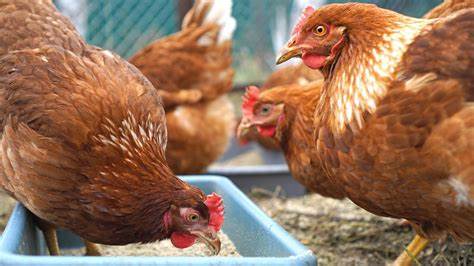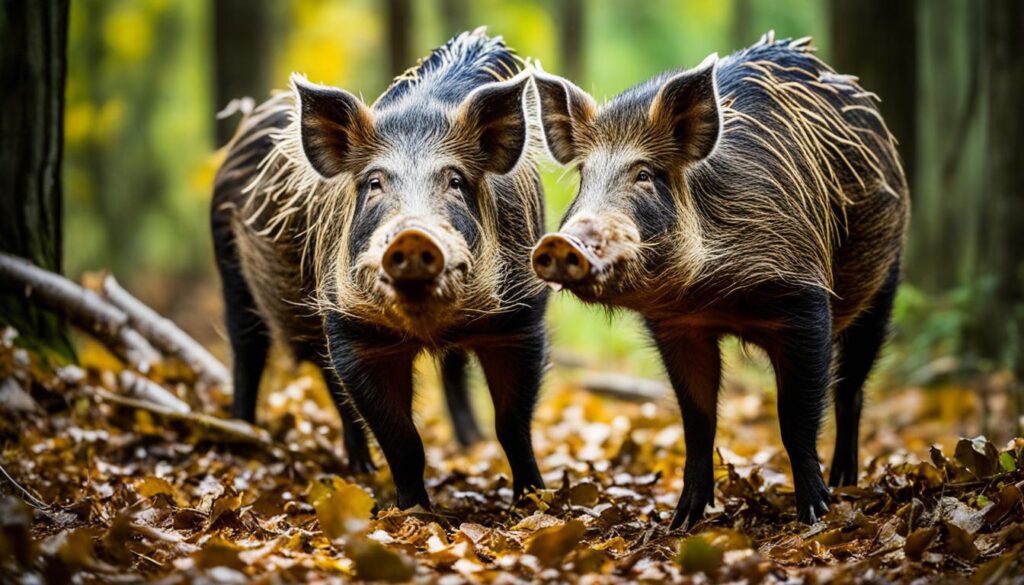The biblical dietary laws are a guide to better health. They aim to help you live longer and stay vibrant while preventing disease. These guidelines have set believers apart for centuries. They point out God’s care for human health. Although seen by some as outdated, the ban on certain animals still matters. Some of these animals can cause diseases in people.

Key Takeaways
- The biblical dietary laws offer a comprehensive guide to optimal health and disease prevention.
- These laws have been a mark of identity for those following biblical guidelines for thousands of years.
- Perceptive scholars recognise the wisdom and benefits behind the dietary laws as expressing God’s care for the health of His people.
- Despite the scientific evidence, the biblical dietary laws are often dismissed as antiquated regulations.
- The same unclean animals prohibited in Scripture still carry dangerous parasitic diseases today.
Introduction to Biblical Dietary Laws
Leviticus 11 and Deuteronomy 14 are key in explaining the dietary laws. They cover which animals are okay to eat and which are not. These rules were given to Israel to set them apart as a model nation. Abiding by these laws, Israel was meant to enjoy good health, showing others the benefits.
God’s Instructions for Clean and Unclean Animals
The Bible tells us what animals are clean and unclean for us to eat. Animals that chew the cud and have split hooves, like sheep, goats, and cattle, are clean. Carnivores and scavengers, though, are not fit for eating. This concept of clean and unclean animals is key in both old testament judaism and the early christian era.
Historical Perspective and Significance
Biblical dietary laws were about keeping God’s people healthy. By avoiding unclean animals, the Israelites were protected from diseases. The impact of these laws is not just historical. Even today, science supports the health benefits of these ancient dietary laws.

Permitted Mammals: Ruminants and Herbivores
The biblical dietary laws allow eating animals like cattle, sheep, and goats. They must have split hooves and chew their food again. These animals are called ruminants and they can turn tough plants into food rich in protein, like meat and milk.
Efficient Conversion of Inedible Plants to Nutritious Food
Ruminants, including cattle, sheep, goats, deer, and bison, do a great job at changing hard-to-eat plants into nutrients. They have a special stomach with four parts. It helps them use the most from the plants they eat.
Sustainable Use of Marginal Lands
From the green side of things, following these rules makes sense. Ruminants can live on lands that are not good for growing crops. They help us use these places and provide food in a way that doesn’t harm the land.
| Ruminant Species | Characteristics | Ecological Significance |
|---|---|---|
| Cattle | Four-chambered stomach, cud-chewing, hooved mammals | Efficiently convert grass and other vegetation into high-quality protein sources |
| Sheep and Goats | Cud-chewing, hooved herbivores | Able to thrive on marginal lands and rangelands, contributing to sustainable food production |
| Deer and Bison | Wild ruminants with divided hooves and cud-chewing abilities | Utilise diverse vegetation in natural habitats, maintaining ecological balance |

Prohibited Animals: Carnivores and Scavengers
The dietary laws do not allow eating carnivorous animals. This is for good reasons. Carnivores, or animals that eat other animals, keep the number of plant-eating animals, or prey, controlled. They do this by hunting and eating the old, sick, or weak animals in the herds.
If we eat these animals, we might get sick because they could pass their diseases to us. What’s more, it’s vital for the environment and our resources that carnivores are left to do their natural job. This is why the bible says not to eat them.

Transmission of Diseases from Sick Prey
Wolves, mountain lions, and other carnivores eat animals like deer that mainly eat plants. If we eat those carnivores, there’s a risk we might get the diseases the deer had. This would make many people ill. To avoid this danger, the bible’s rules stop us from eating these carnivores.
Ecological and Economic Considerations
There are more reasons not to eat these animals. They are important for keeping nature balanced and disease-free. For example, by not eating mountain lions, they can continue hunting weak animals. This helps stop diseases from spreading. Also, some animals clean up dead creatures, which is good for keeping diseases at bay.
Letting people eat these animals could throw the whole environment out of balance. It would be bad for the plants and animals and for how we take care of the land.
| Animal | Ecological Role | Economic Implications |
|---|---|---|
| Wolves | Help control deer populations, maintain herd health | Protect forestry and agricultural resources from deer damage |
| Mountain Lions | Prey on weaker or sick animals, preventing disease spread | Safeguard livestock and other domestic animals from predation |
| Scavengers (e.g., vultures, hyenas) | Quickly remove decaying biomass, limiting disease transmission | Provide economically valuable services in waste management and sanitation |
By not eating carnivores and scavengers, we leave them to protect nature. This ensures our world stays healthy and our needs are met. It’s all about living in a way that doesn’t harm the planet for our future.

The Swine: A Specific Prohibition
The pig, or swine, is clearly labelled unclean in the Bible and not fit for us to eat. Some experts think the exact reasons for this rule are not fully understood. But, looking at things like how pigs eat, their stomach systems, and the diseases they can spread show why this rule was made. Pigs are animals that eat both plants and meat. They can gain weight very quickly. They eat almost anything, from grains to leftovers, dead animals, and even things we humans throw away.
This is not just about what they eat, but about how their bodies work too. Pigs are good at turning waste into food that’s full of protein. This might sound good, but it causes problems. You see, they end up competing with us for food. Their eating habits can make raising food for humans less efficient. Besides, there’s a real risk that pigs can spread diseases to people.
Similarities in Human and Pig Digestive Systems
Pigs are not picky eaters. They can eat a lot of different things. This includes stuff that’s not fit for us, like garbage and human waste. Because their stomachs work in a way similar to ours, they can turn this waste into stuff we could eat. This sounds helpful but, in reality, it creates problems. They can use food we might need, making it hard for us to grow enough food for ourselves.
Implications for Public Health and Food Safety
The rule against eating pigs goes beyond just being a rule. It’s a big deal for keeping us safe from diseases. Pigs can carry illnesses that can make people very sick. These include things like salmonella, trichinosis, and worms. If we eat pork, we could get these diseases. Plus, pigs raised for food often get medicines. Sometimes the bacteria they carry become resistant to these medicines. This poses a risk to us if we eat meat from these pigs.

| Statistic | Value |
|---|---|
| Estimated Americans carrying live trichinae | 1.5 million |
| Estimated new trichinosis cases annually | 150,000 to 300,000 |
| Pigs infected with toxoplasmosis parasite | Nearly 1 in 3 |
| Americans affected by salmonella each year | Nearly 2 million |
| Raw meat contaminated by salmonella | Up to 50 percent |
The Bible’s advice on not eating pigs is ahead of its time. It helps keep us safe and our food production good for the environment. This rule shows wisdom in knowing the risks pigs can bring. It’s about making choices that are good for our health and the planet.
Health: Protection from Parasitic Infections
The biblical dietary laws help prevent serious health problems from parasites. Trichinosis comes from a tiny roundworm in muscle tissue. It spreads through swine and other unclean animals. Pork was traditionally the top meat but is now second to poultry. The average American eats over 50 pounds of pork a year.
Trichinosis and Other Roundworm Infestations
Roundworms, like Ascaris, grow up to 20 cm long and are light brown or pink. They bring symptoms such as stomach pain, vomiting, and more. A big infection might cause the gut to block.
Tapeworms and Their Dangerous Impacts
Tapeworms affect about 100 million people globally and pose a big health risk. The pork tapeworm is the worst. Its larvae can move to the heart, brain, or eyes, leading to very serious issues. They grow as long as 6 m and are whitish-yellow, living in the guts.
The biblical rules against eating unclean animals helps stop parasite spread. This safeguards public health. It’s also vital to practice good hygiene. This includes washing hands often, not eating raw meat, and following food safety principles.

Emerging Viral Diseases and Unclean Animals
Eating unclean animals like bats, pigs, and civets is connected to many new viral diseases. These illnesses, such as SARS, Swine Flu, and COVID-19, started from them. Virologist Michael Lai points out that southern China’s wild animal eating habits are a key reason for this.
Both SARS and common flu viruses began in southern China. This isn’t shocking due to the eating practices there. Lai also suggests that SARS might have come from animals, then spread to humans.
Eating bats, camels, or civets can cause dangerous diseases in humans. These animals carry dangerous germs that can start big pandemics. Following biblical dietary laws to avoid these creatures might help stop future health crises.
Environmental Stewardship and Dietary Guidelines
The biblical dietary laws are good for both our health and the planet. They say we should eat certain animals, like cows and sheep. These animals can eat plants from difficult places and turn them into good food. But, we shouldn’t eat some animals that are important for keeping the environment in balance. By choosing our food carefully, we can help the Earth and keep God’s creation healthy.
Conserving Resources through Wise Food Choices
When countries follow healthy eating rules, it helps save lives. It can lower early deaths by 15%, which is a big deal. However, following these rules doesn’t always help the planet much. They cut down greenhouse gases by 13% on average, but some rules aren’t good for our global health goals. This means we need to think more about what we eat to protect the Earth.
Promoting Ecological Balance and Biodiversity
The Bible tells us which animals are okay to eat. It says some animals, like eagles and vultures, we shouldn’t eat. These animals do important jobs in the wild, like keeping animal numbers in check. They pick off the weak or old ones, which helps keep the plant and animal world balanced. By eating the right foods, we help nature stay in harmony, taking care of God’s world.
Countering Objections and Misconceptions
Many scholars think the Bible’s rules on food are outdated. They say these rules came from ancient beliefs and don’t make sense now. But today, science proves these food rules make sense for our health and protecting the planet.
Theological Arguments for Disregarding Dietary Laws
Some people believe we can ignore the Bible’s food rules. They argue that these rules don’t help us anymore. But they miss the point. The Bible’s food rules were meant to help both people and society.
Scientific Evidence Supporting Biblical Wisdom
Modern science actually backs up the Bible’s food rules. It shows that these rules are good for our health and the planet. For instance, research supports why some animals were considered clean or unclean thousands of years ago.
